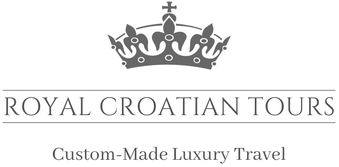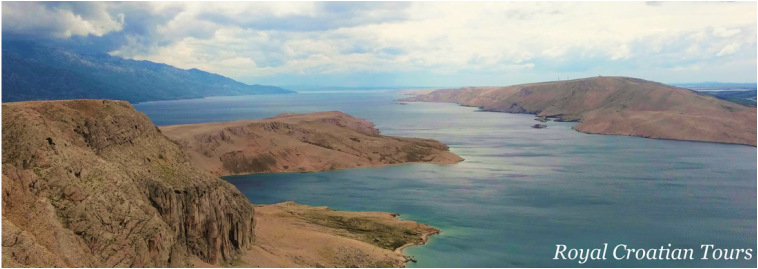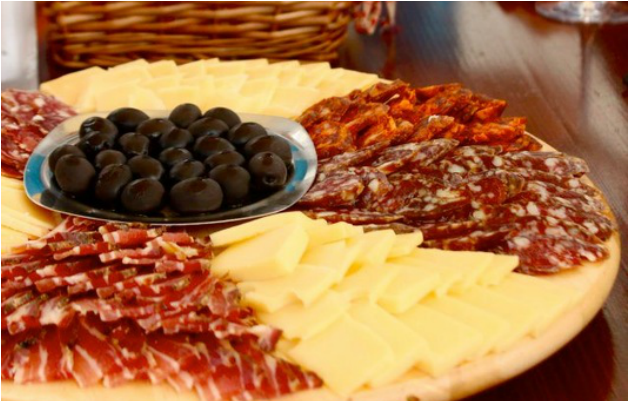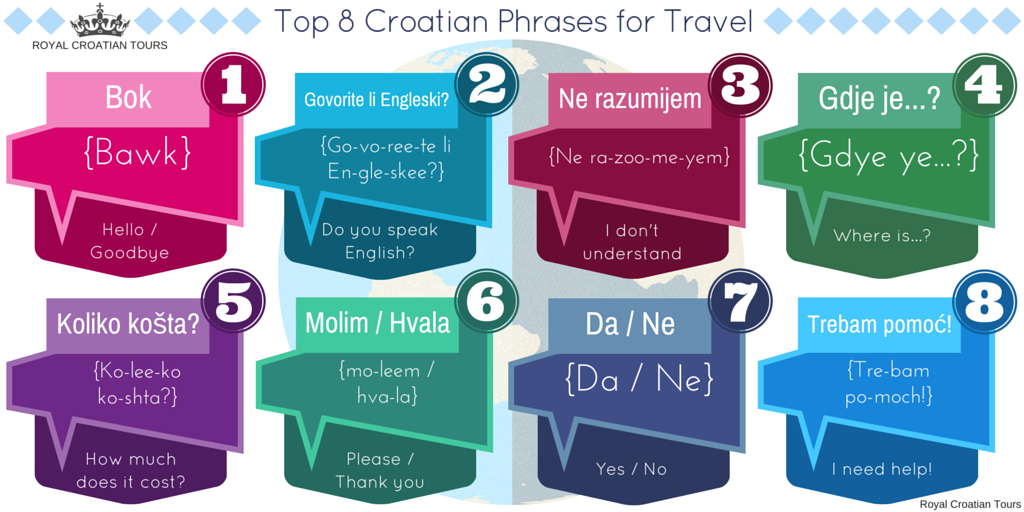General Information:
Croatia is a unique country full of extraordinary natural beauty and an equally interesting historical and cultural heritage. The country is situated on the Adriatic Sea with no shortage of beaches to take your breath away, especially with over a thousand islands and islets to explore. Croatia's history and culture can be seen all over the country, along with numerous fortresses and caves where ancient handmade relics can be found. Croatian food is an exquisite combination of classic Mediterranean and Italian flavour. The climate along the coast is perfect for vineyards and olive groves to flourish, which is why Croatia is well known for its impeccable wine and olive oil selection.
Croatia is a unique country full of extraordinary natural beauty and an equally interesting historical and cultural heritage. The country is situated on the Adriatic Sea with no shortage of beaches to take your breath away, especially with over a thousand islands and islets to explore. Croatia's history and culture can be seen all over the country, along with numerous fortresses and caves where ancient handmade relics can be found. Croatian food is an exquisite combination of classic Mediterranean and Italian flavour. The climate along the coast is perfect for vineyards and olive groves to flourish, which is why Croatia is well known for its impeccable wine and olive oil selection.
|
Emergency Numbers:
Police: 192 Currency: Fire: 193 Ambulance: 194 Phone Code: +385 |
Population: 4 480 043 (2012)
Capital: Zagreb Currency: Croatian Kuna Official Language: Croatian Phone Code: +385 |
Croatia is a very safe country to visit with an extremely low crime rate. On July 1, 2013, Croatia became the 28th country to join the European Union and is in line with all EU laws and standards. The country has a quite a long coastline along the Adriatic Sea (approximately 950km/590 miles), and a little over 1200 islands to discover (only about 60 are inhabited). Croatia shares a border with several countries; Slovenia, Hungary, Serbia, Bosnia & Herzegovina, and Montenegro.
Climate and Average Temperatures:
Croatia has two different climates, one along the coast, and the other in the interior of the country. The coastal region has more of a Mediterranean climate with hot, sunny, dry days in the summer, and relatively mild winters which can be quite rainy. Average temperatures in the summer typically stay between 25-30°C/77-86°F. Winters are cooler, but temperatures don't usually drop below 5°C/41°F. The interior of Croatia has more of a continental climate where summers are very hot, reaching temperatures well above 30°C. Winters on the other hand can be frigid, with temperatures often dropping below O°C/32°F. Snow is common and can be quite heavy in January and February.
Croatia has two different climates, one along the coast, and the other in the interior of the country. The coastal region has more of a Mediterranean climate with hot, sunny, dry days in the summer, and relatively mild winters which can be quite rainy. Average temperatures in the summer typically stay between 25-30°C/77-86°F. Winters are cooler, but temperatures don't usually drop below 5°C/41°F. The interior of Croatia has more of a continental climate where summers are very hot, reaching temperatures well above 30°C. Winters on the other hand can be frigid, with temperatures often dropping below O°C/32°F. Snow is common and can be quite heavy in January and February.
Croatian Money & Currency Exchange:
The official currency in Croatia is the Kuna. One Kuna equals 100 Lipas (like cents). Croatia has countless banks, exchange offices and ATMs where you can safely exchange your money from any currency. The foreign currency exchange places will usually be labelled in English. If not, the Croatian term is "Mjenjačnica." Denominations of 10, 20, 50, 100, 200, 500, 1000 come in paper notes, and there are 1 & 2 kuna coins. Some restaurants and cafes don't accept credit card payments, so be sure to have enough cash when going out to eat or for a drink.
The official currency in Croatia is the Kuna. One Kuna equals 100 Lipas (like cents). Croatia has countless banks, exchange offices and ATMs where you can safely exchange your money from any currency. The foreign currency exchange places will usually be labelled in English. If not, the Croatian term is "Mjenjačnica." Denominations of 10, 20, 50, 100, 200, 500, 1000 come in paper notes, and there are 1 & 2 kuna coins. Some restaurants and cafes don't accept credit card payments, so be sure to have enough cash when going out to eat or for a drink.
Dining Out:
If you're travelling in the peak season, make sure to ask your hotel or guide to make reservations for you at any popular restaurants in which you’d like to dine (or of course you can make the reservations yourself). Most of the best restaurants fill up quite quickly in the evenings, so be sure to book ahead. If you’re planning on paying by credit card, double check with the restaurant first if they accept credit cards. As previously mentioned, many places (especially on the islands) only accept cash payments. Tips are not expected but very much appreciated.
If you're travelling in the peak season, make sure to ask your hotel or guide to make reservations for you at any popular restaurants in which you’d like to dine (or of course you can make the reservations yourself). Most of the best restaurants fill up quite quickly in the evenings, so be sure to book ahead. If you’re planning on paying by credit card, double check with the restaurant first if they accept credit cards. As previously mentioned, many places (especially on the islands) only accept cash payments. Tips are not expected but very much appreciated.
Summer travel to Croatia - make sure to pack:
Light jacket in case of rain
Sweater or two for cooler evenings
Comfortable shoes for exploring
Water shoes/beach shoes (they might be ugly, but since the coastline is more rocky than sandy, your feet will thank you)
Light jacket in case of rain
Sweater or two for cooler evenings
Comfortable shoes for exploring
Water shoes/beach shoes (they might be ugly, but since the coastline is more rocky than sandy, your feet will thank you)
Croatian Language:
The language can be quite difficult to learn, but locals really appreciate the effort if you do try to learn a word or two! Most Croats speak at least a little English, though, especially in areas where tourism exists.
The language can be quite difficult to learn, but locals really appreciate the effort if you do try to learn a word or two! Most Croats speak at least a little English, though, especially in areas where tourism exists.
|
Useful Words and Phrases:
hello/goodbye - bok How are you? - Kako ste? please - molim Thank you - Hvala good - dobro Where is... - Gdje je... I need... - Ja trebam... Can I get... - Mogu li dobiti... restaurant - restoran wine - vino beer - pivo coffee - kava Cheers! - Živjeli! Help! - Pomoć! restroom - WC |
Excuse me - Oprostite
Do you speak English? - Govorite li Engleski? I don't speak Croatian. - Ne govorim Hrvatski. I don't understand. - Ne razumijem. I don't know. - Ne znam. Good morning. - Dobro jutro. Good afternoon. - Dobar dan. Good evening. - Dobra Večer. Good night. - Laku noć. My name is... - Moje je ime… Nice to meet you. - Drago mi je. Where are you from? - Otkuda ste? I'm from Canada/America. - Ja sam iz Kanade/Amerike. |
Pronunciation:
*The Croatian letters č and ć are pronounced ch (Example: pomoć is pronounced pomoch.)
*The Croatian letter š is pronounced sh (Example: škola is pronounced shkola)
*The Croatian letter ž is pronounced like a soft g as in the word luge.
*The Croatian letter j is pronounced like a y (Example: jogurt is pronounced yogurt
There is obviously plenty more to know about Croatia, but hopefully this covers some of the basics for you. We'd be more than happy to answer any questions you may have about travelling to Croatia. Just comment below or email us directly :)
Happy travels!
Sarah
*The Croatian letters č and ć are pronounced ch (Example: pomoć is pronounced pomoch.)
*The Croatian letter š is pronounced sh (Example: škola is pronounced shkola)
*The Croatian letter ž is pronounced like a soft g as in the word luge.
*The Croatian letter j is pronounced like a y (Example: jogurt is pronounced yogurt
There is obviously plenty more to know about Croatia, but hopefully this covers some of the basics for you. We'd be more than happy to answer any questions you may have about travelling to Croatia. Just comment below or email us directly :)
Happy travels!
Sarah















